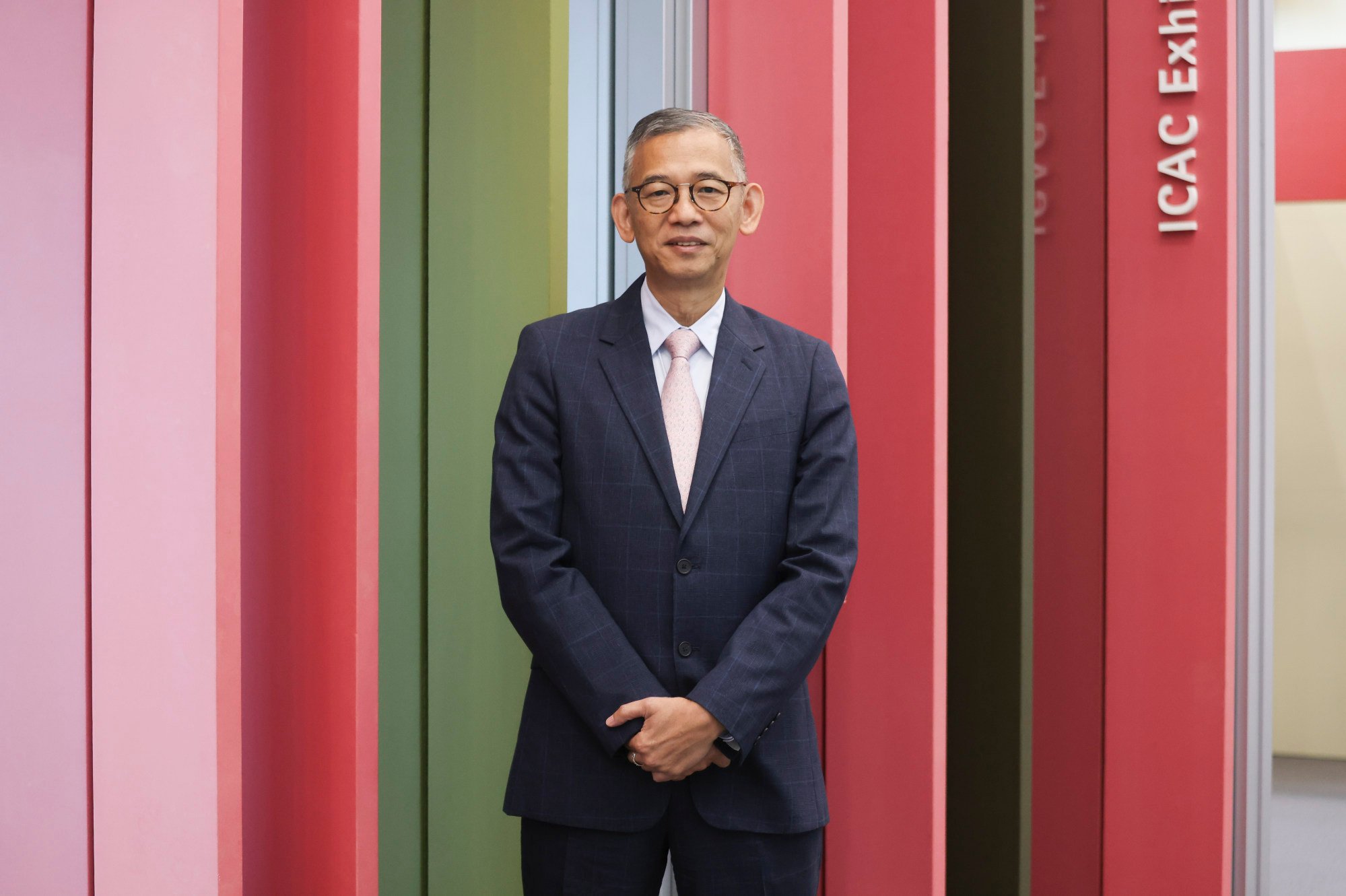
Hong Kong’s graft-buster to take tactics global as part of Xi’s ‘clean’ belt and road push
- Independent Commission Against Corruption chief Danny Woo reveals details of new academy that will train graft-busters from overseas
- Approach could answer Chinese President Xi Jinping’s call made at Belt and Road Forum for more ‘clean cooperation’ among participating countries, he says
Hong Kong’s new graft-busting academy will teach anti-corruption practices to law enforcement officers from around the world as part of Beijing’s push for clean and transparent cooperation among countries taking part in the Belt and Road Initiative, the agency’s chief has told the Post.
“We have the backing of the motherland, as well as global connections, which is a position of great advantage,” he said. “Why shouldn’t we do a bit more to promote [anti-corruption practices] and connect different cultures to help the world develop?”

To capitalise on its strengths, the ICAC is in the process of establishing the Hong Kong International Academy Against Corruption, which will offer training for overseas graft-busters starting in February.
Conceived at the start of the year, the academy would design programmes more tailored than the agency’s courses in the past, Woo vowed.
“Once our academy is established, we will organise courses every month for both overseas and local participants,” he said. “The content will also be much more specialised.”
Instead of providing half-day lectures, the ICAC will offer two-day interactive sessions with ample opportunities for senior officials from graft-busting agencies to learn from each other, the commissioner explained.
“We hope to share our experiences through this platform,” Woo said. “Some [participating] countries are similar to one another, perhaps they could share their own anti-graft mechanisms for others to consider. Using this interactive and mutually respectful approach is better than a one-sided one.”
Hong Kong’s graft-buster to set up academy to teach tactics to overseas officers
Woo said the academy’s approach could address Chinese President Xi Jinping’s eight-point plan laid out at the Belt and Road Forum in Beijing last month, which included a call for more “clean cooperation” among participating nations to improve transparency.
“For instance, [we have] our anti-corruption training and research for Belt and Road countries,” Woo said. “Our next step is to play our part in national development in these aspects.”
The belt and road plan refers to Beijing’s ambitious scheme to link dozens of economies in Asia, Europe and Africa into a China-centred trade network.
The ICAC held a week-long pilot training programme last month for graft-busters from countries including South Africa, Mali, Nigeria, Thailand, Mongolia and Pakistan. The course included a three-day tour to Guangdong, Zhuhai and Zhongshan where the officers visited major infrastructure sites to learn how they were run.

The commissioner said he also hoped to carry out “tactical exchanges” on cross-border law enforcement and anti-corruption guidelines with mainland China’s graft-busters in the Greater Bay Area.
In addition to organising training programmes, the academy would conduct corruption-related research using its own officers and external experts, he added.
Woo said he had no plans to construct a dedicated building for the academy, as the process was too time-consuming, but the agency would use two renovated floors of the ICAC’s North Point headquarters, as well as parts of its training facility in Tuen Mun.
The commissioner also revealed the agency would continue its collaboration with the United Nations Office of Drugs and Crime by holding a workshop in the city next February.
Hong Kong’s ICAC hosts UN anti-corruption workshops in first-ever move for agency
The ICAC will mark a half-century of operation next year, and Woo said the city was now free of systemic corruption in the public sector, with only individual bad apples emerging in complaints.
The agency received 1,835 complaints last year, down from 2,264 cases in 2021. Among the cases last year, 533 involved government bureaus and departments, 121 involving other public bodies, and 1,181 concerned private firms.
Woo said the finance, insurance, property management and construction sectors ran the highest risk of corruption due to the large sums involved in their business.
Property management topped the list of complaints for corruption last year, followed by the construction and finance industries, including insurance. But the commissioner remained confident in his agency’s ability to combat fraudsters’ ever-shifting methods.
“Criminals are like amoebas,” Woo said. “They keep shifting their tactics, such as by using new methods when they see past crimes were caught by the ICAC. But the ICAC has also sought to change with the times throughout all these years, including by keeping up with the latest methods of crime.”
‘Geopolitical tensions could further hurt Hong Kong’s global corruption ranking’
On recruitment, the commissioner noted the graft-buster was able to meet its hiring goals, while some disciplined forces had relaxed entry requirements in response to staffing crunches.
The agency had received three times more applications than the 60 job openings for investigator and assistant investigator positions during an open recruitment day held in September.
Woo, who began his career with the Correctional Services Department, urged applicants to prepare for the physical demands of the job early in advance, which included performing one minute of push-ups and another of sit-ups to qualify.

